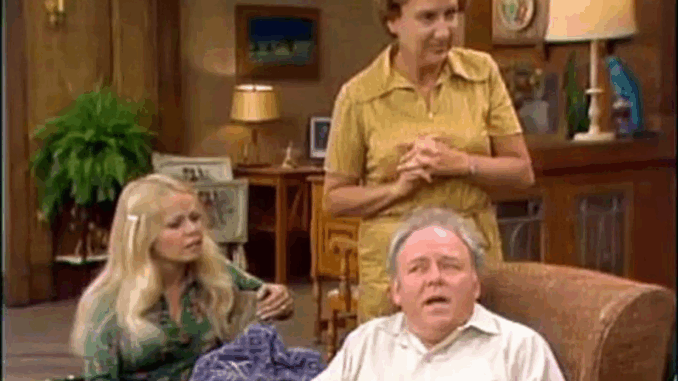
All in the Family was never afraid to tackle uncomfortable truths, and the episode “Archie’s Helping Hand” is a masterclass in how sitcoms can challenge viewers while keeping them laughing. First aired in Season 4, this episode centers around Archie Bunker’s attempt to “help” someone in need — and how his help reveals more about his own worldview than he realizes.
Archie Tries to Do the Right Thing… Sort Of
In “Archie’s Helping Hand,” Archie takes it upon himself to assist a co-worker who’s fallen on hard times. On the surface, it seems like a kind gesture. But in true All in the Family fashion, Archie’s motives — and methods — are anything but simple.
Archie isn’t offering help out of pure altruism. Instead, his actions are laced with condescension, assumptions, and a need to feel superior. He sees himself as a “good guy,” but fails to understand the dignity of the person he’s trying to help. What starts as charity quickly becomes a case study in misplaced pride and unconscious bias.
The Danger of Patronizing Generosity
The episode shines by exposing how help, when given without empathy or equality, can become harmful. Archie assumes he knows what’s best and treats his co-worker more like a project than a person. He offers handouts instead of listening — reinforcing class divisions rather than bridging them.
The brilliance of the writing lies in its subtlety. The jokes land hard, but they carry weight. Archie’s brand of “help” reflects a larger social problem: the kind of charity that masks control, judgment, or self-interest.
Edith and Gloria Offer a Contrast
As usual, Edith brings heart and emotional intelligence to the situation. While Archie focuses on appearing generous, Edith shows what real compassion looks like — quiet, respectful, and without strings attached. Gloria, meanwhile, provides a younger, more politically conscious perspective, challenging her father’s motives and worldview with sharp clarity.
Their presence offers a moral compass for the episode, balancing Archie’s blundering attempt at heroism with genuine understanding.
A Lesson in Self-Awareness
By the end of “Archie’s Helping Hand,” viewers are left questioning not just Archie’s behavior, but their own ideas about what it means to help others. The episode doesn’t offer neat resolutions — instead, it asks uncomfortable questions:
-
Is it still help if it’s more about ego than empathy?
-
Can good intentions excuse ignorance?
-
How do class and pride intersect in acts of “generosity”?
A Lasting Impact on TV Storytelling
Norman Lear and the All in the Family writing team once again proved that sitcoms could go beyond slapstick and family squabbles. With “Archie’s Helping Hand,” they tackled the complex nature of class dynamics, moral superiority, and the hidden strings behind seemingly kind acts.
This episode remains a relevant commentary in today’s world — where charity, allyship, and social responsibility are constantly under the spotlight.